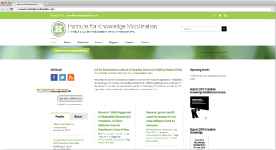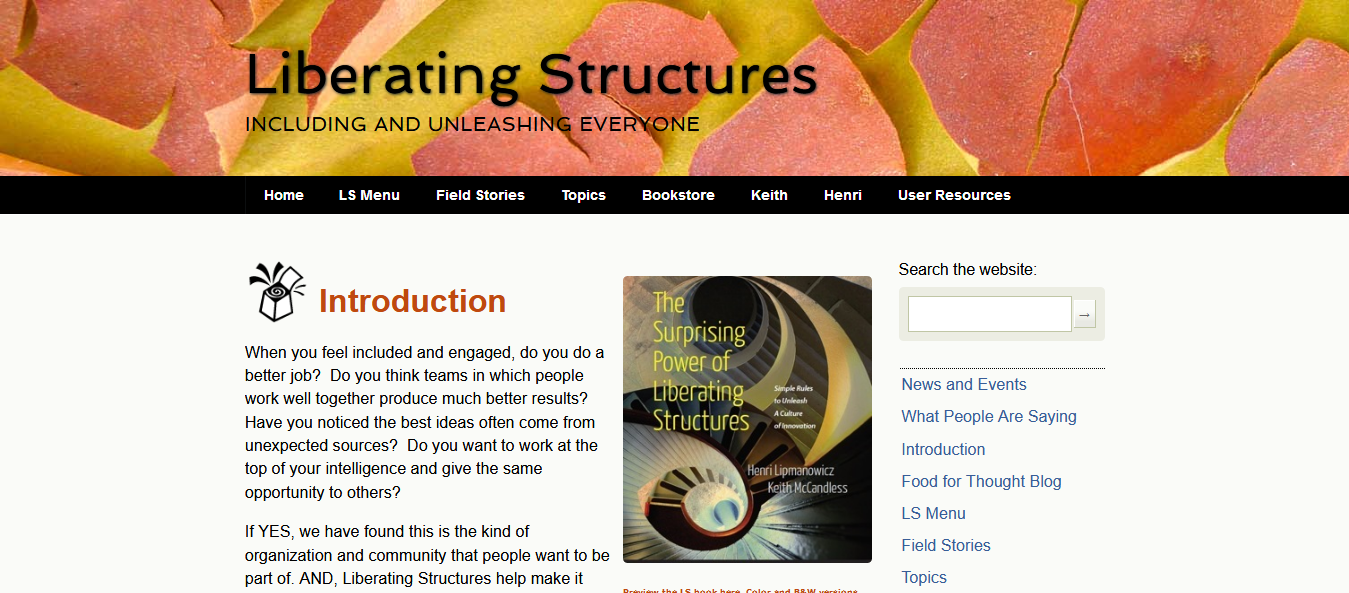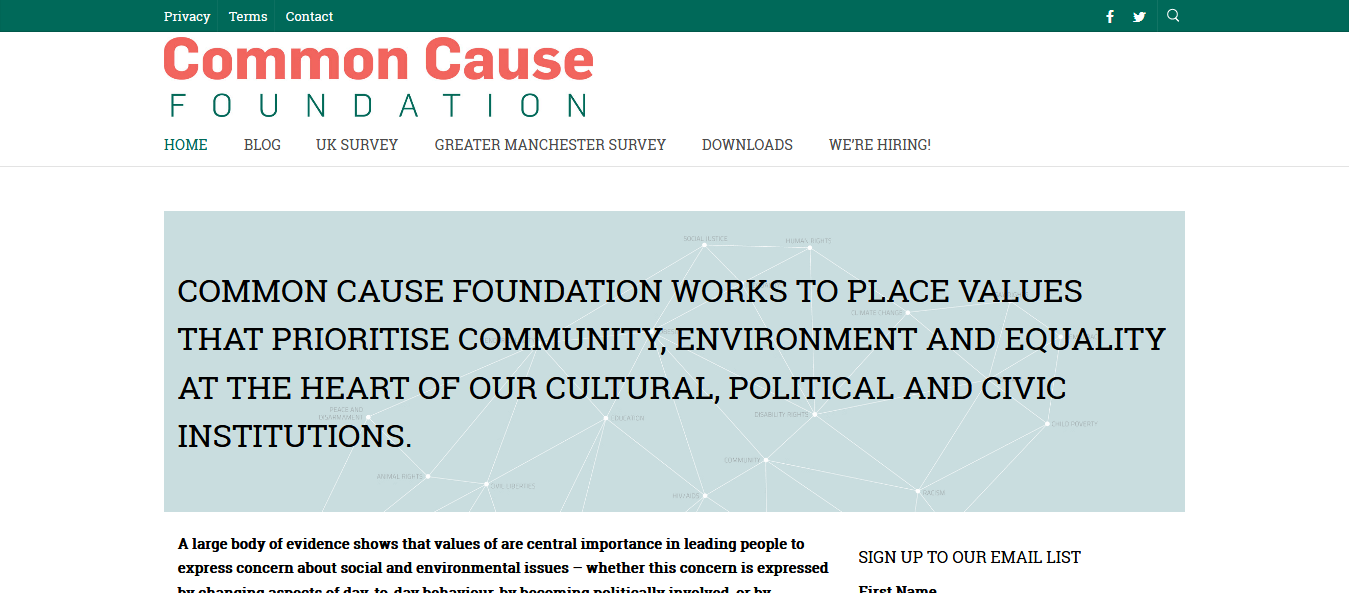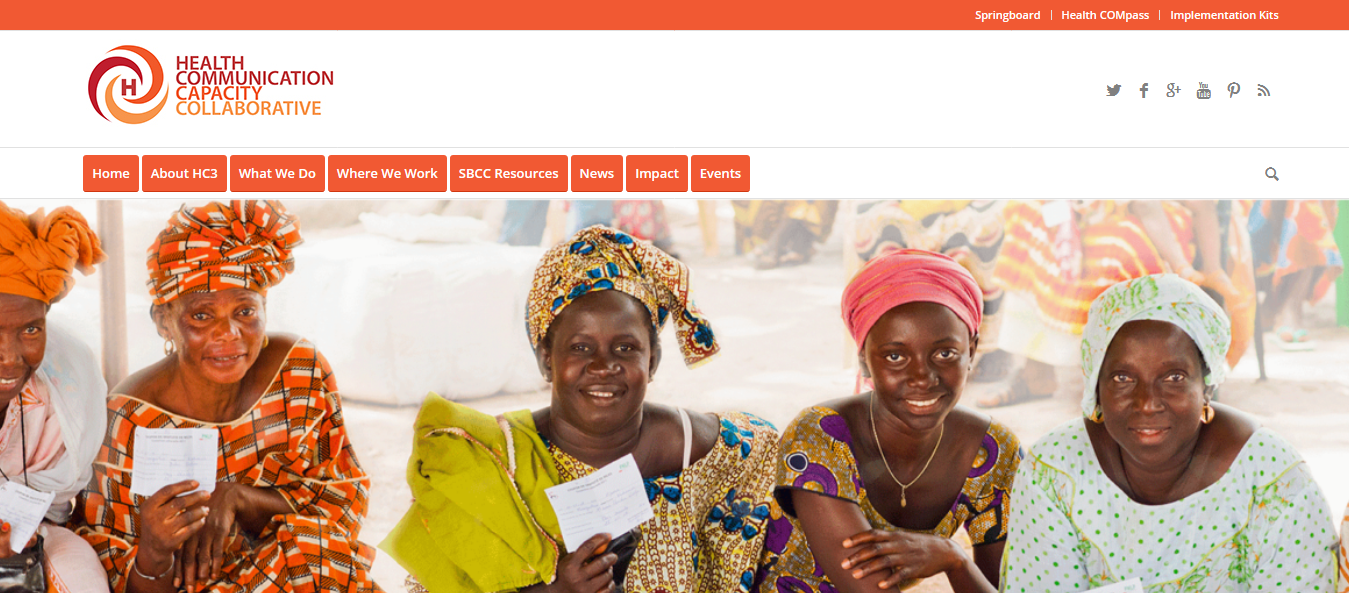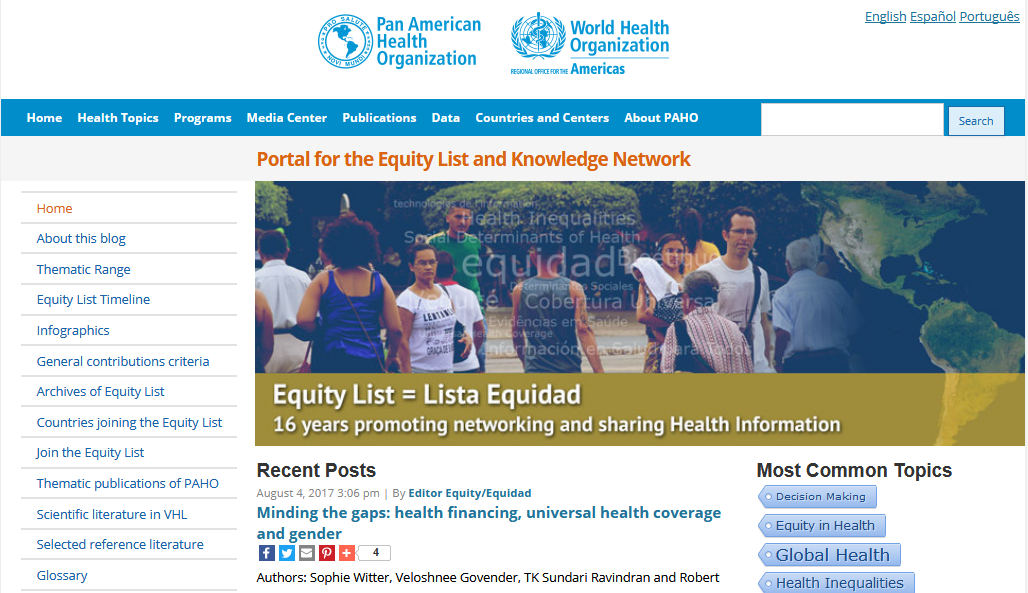A good source of alternative media … CANADALAND is a news site and podcast network funded by its audience. Their primary focus is on media criticism and media reporting.
The Institute for Knowledge Mobilization is a non-profit think tank focused on: education, learning and capacity development on issues of knowledge mobilization; collaboration and community engagement; applied research and policy support; and evaluation and monitoring.
This website offers an alternative way to approach and design how people work together. It provides a menu of thirty-three Liberating Structures to replace or complement conventional practices. Liberating Structures used routinely make it possible to build the kind of organization that everybody wants. They are designed to include everyone in shaping next steps.
The Upstream Lab is based in the Centre for Urban Health Solutions, in the Li Ka Shing Knowledge Institute at St. Michael’s Hospital in Toronto. The Upstream Lab was founded in 2016 and developed to create a space to advance thinking, research, education and collaboration around addressing the social determinants of health. As a program, it is dedicated to: incubating novel interventions that tackle social factors that impact on health, rigorous evaluation of interventions, sharing findings widely, and training “upstreamists” to become change agents.
Common Cause Foundation works to place values that prioritize community, environment and equality at the heart of our cultural, political and civic institutions. Common Cause is a network of people working to rebalance cultural values, creating a more equitable, sustainable and democratic society. They draw on extensive collaboration with some of the world’s leading social psychologists and are establishing key principles and insights to achieve their vision.
Community Economic Development (CED) is action by people locally to create economic opportunities that improve social conditions, particularly for those who are most disadvantaged. It is an approach that recognizes that economic, environmental and social challenges are interdependent, complex and ever-changing. The members and activities are as varied as the communities they are in, but they focus on three primary strategies to improve well-being: supporting individuals, building enterprises and strengthening communities.
This is a Canadian online learning community for collaborative leaders. It includes over 1,000 collaborative leaders who work on multi-sector issues across North America and internationally. The common interest that binds the membership together is the united desire to change the world: one community at a time. This site provides a platform for learning with one another about how to address complex community issues and create positive change. This is the key to deepen our learning about ourselves, others, and the work of collaboration and change within communities.
Collective impact brings people together, in a structured way, to achieve social change. The Collective Impact Forum gives practitioners a place to connect with others who are using the collective impact approach. You can join this community to learn from the challenges and successes of others, and to access information vital to advancing your work.
The Health Communication Capacity Collaborative (HC3) is USAID’s flagship social and behavior change communication (SBCC) project. The five-year, global project is designed to strengthen developing country capacity to implement state-of-the-art SBCC programs, including expertise in social and behavior change for gender equity, environment and democracy and governance. HC3’s goal is to foster vibrant communities of practice at the national, regional and global level that support improved evidence-based programming and continued innovation.
The purpose of this blog is to share public health information of international significance with contents related to the priority issues on health and human development. The main topics connect equity and its implications of reduction of inequalities in health, poverty reduction, universal health coverage, ethics, gender and the social determinants of health, and their applications to developing countries, and their relevance to policy and program instruments. The related Network comprises over 30,000 core recipients (public health professionals, researchers, authors, economists, policymakers, etc.) and is connected to multiple global networks.

